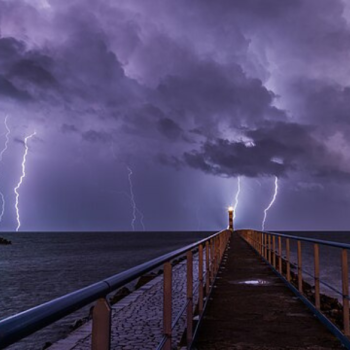The first thing to note about this amazing statement is that YHWH is speaking only to Godself; we may listen in here to the very heart of God, that heart that was filled with sorrow and grief in Genesis 6:6. After the holocaust of the flood, YHWH is musing about the next course of the divine action. YHWH resolves never to do such a cataclysmic thing again, but note the reason YHWH gives for the decision—exactly because "human hearts are evil from their youth." But was not that the very reason that triggered the terrible flood in the first place?! Was the flood not a direct result of YHWH's grief at the fact of human evil? But here in Genesis 8, after the flood, YHWH determines never again to destroy the world due to human evil.
Thus, the conclusion of this story of the flood comes clear: human beings, even after the flood, remain evil. The flood has not washed that evil away. It is YHWH who has changed because of the flood. Though we humans are evil, YHWH resolves never again to destroy us because of that fact. It could be said that the God of strict justice who brought the flood has now become the God of grace who forbears from destruction in the face of our continual evil. The unceasing round of the seasons (Gen. 8:22) is a perpetual sign that YHWH is keeping the divine promise to the sinful creatures.
Hence, the flood tale, a very old story repeated by many in the ancient near east well before the Hebrew writing about it, in the hand of the Hebrew theologians becomes a theological claim about the central nature of the God of Israel. That God is after all a God of grace, "whose will is ever directed to the children's good." We preachers need to preach from this grand old story, since it is a testament to the grace-filled God of Jesus Christ.





